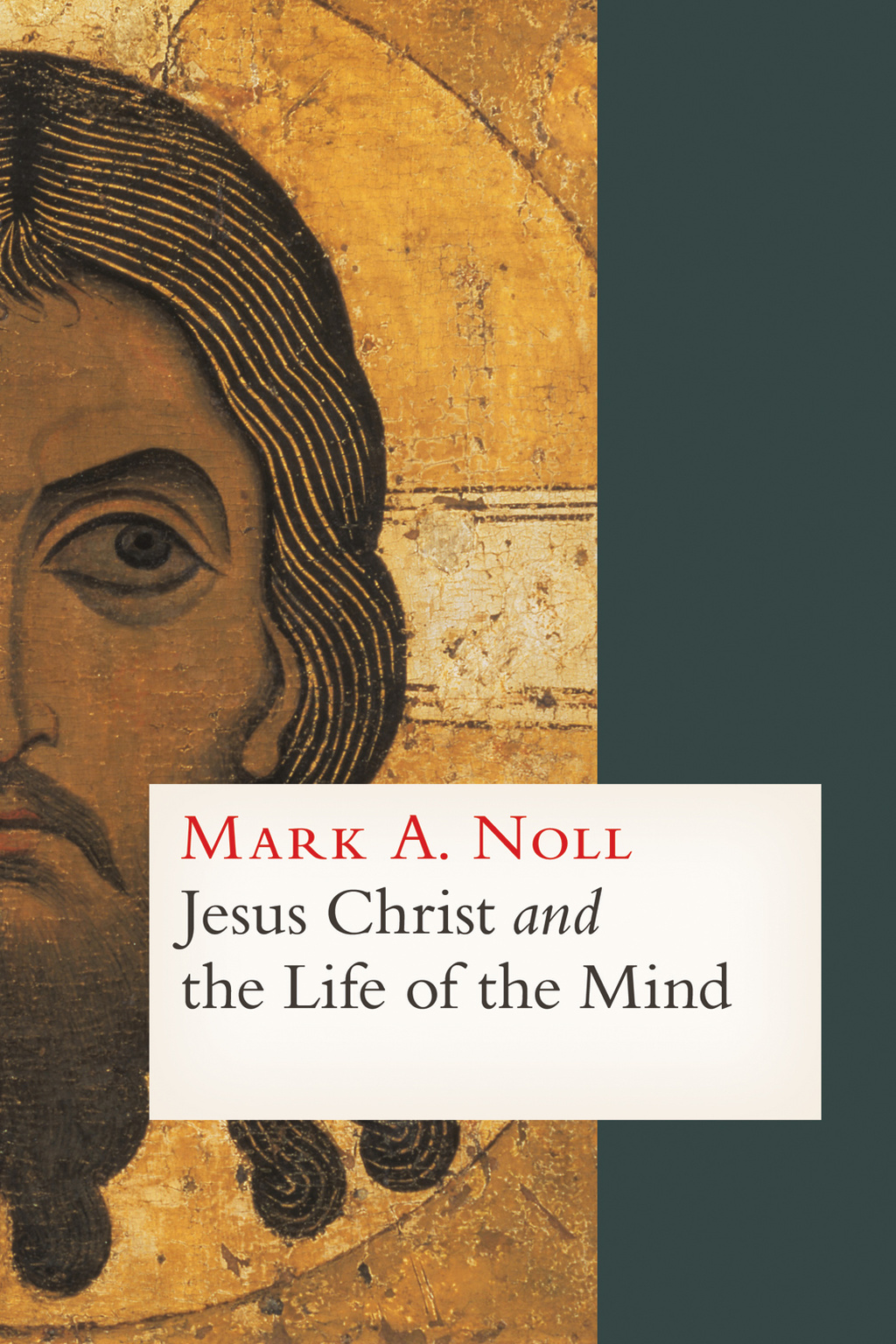
Jesus Christ and the Life of the Mind By Mark A. Noll, Reviewed by Hannah Schultz
In his most recent book, Jesus Christ and the Life of the Mind, Mark Noll continues the discussion of Christian, and particularly evangelical, scholarship which he began in The Scandal of the Evangelical Mind (1995). He argues that Christian scholarship can best be advanced by recognizing the centrality of Christ and the Incarnation in the Bible. Using church creeds and the works of a variety of Christian scholars, Noll attempts to develop an overarching principle to govern Christian scholarship in a variety of disciplines.
- Hannah Schultz
(Grand Rapids: Wm B Eerdmans Publishing Company, 2011)
In his most recent book, Jesus Christ and the Life of the Mind, Mark Noll continues the discussion of Christian, and particularly evangelical, scholarship which he began in The Scandal of the Evangelical Mind (1995). He argues that Christian scholarship can best be advanced by recognizing the centrality of Christ and the Incarnation in the Bible. Using church creeds and the works of a variety of Christian scholars, Noll attempts to develop an overarching principle to govern Christian scholarship in a variety of disciplines.
Noll is a well-known figure in the evangelical (and Reformed) world. As a follow-up to the very popular Scandal, this book is likely to attract significant interest. It was a selection for the ecumenical Christian reading group to which I belong, at a large secular university, particularly because of its broad appeal to evangelicals. He serves a wide audience and is well respected as an historian.
Noll focuses on important issues. He points to an emphasis on Christology. He encourages the Christian pursuit of excellence in academic and scholarly endeavors. He devotes significant space to the study of historic Christian creeds. He provides a useful rubric delineating the "Varieties of Providential History" which offers a useful format for evaluating the ways in which historians interpret their subject matter (p. 88). Unfortunately, while arguing for desirable goals, Noll is quick to abandon the sufficiency and inerrancy of Scripture.
A Major Flaw
Much of Noll's discussion of Christology and of the Christian study of science is heavily indebted to Peter Enns's work in his Inspiration and Incarnation: Evangelicals and the Problem of the Old Testament (2005). The theological views that Enns presented in this book resulted in his being terminated from Westminster Theological Seminary in 2008. Although Noll offers the caveat that he does not to subscribe to all of Enns's beliefs, his work is heavily influenced by Enns's unorthodox interpretive hermeneutic. He adopts Enns's "Christotelic" focus, positing that the Bible ought to be seen exclusively as a path to the Incarnation. Noll argues that because the Incarnation meant that Christ is fully human, and because the primary (if not only) focus of the Scripture is the Incarnation, then the Scriptures are, in the same way, also fully human. He takes this full humanity to mean that the Scriptures are inextricably linked to the period in which they are written and are therefore inaccessible to modern-day Christians except as a snapshot of ancient believers' journeys toward the Incarnate Christ.
This "grammatical-historical hermeneutic" (p. 142) results in significant problems in Noll's discussion of Biblical inerrancy, problems which result in further errors as he discusses the relationship between the Bible and science. Quoting Enns, Noll argues that "We begin with the assumption that what the Bible intends for us to learn is not primarily concerned with textual unity or precise moral consistency ... It is a broad and fundamental theological commitment based on the analogy between Christ and Scripture" (p. 139). As a result of this hermeneutic, and Noll's heightened appreciation for God's general revelation as interpreted by modern secular scholars, the Scriptures become important exclusively as a trope. "Historical awareness (of the periods in which the Bible was written) is required because the relationship between God's ‘two books,' Scripture and nature, has changed significantly over the course of centuries between biblical times and the present" (p. 100).
While Noll does not deny the infallibility or inerrancy of Scripture outright, he makes it clear that the preservation of those doctrines is not of significant importance. "If by taking advantage of new historical knowledge ... and using techniques of literary and cultural analysis . . . believers agree on some matters with secularists who deny the inspired character of Scripture, this is not automatically a bad thing" (p. 142). This new way of examining the Scriptures leaves the way open not only to evolutionary thought but also to all variety of modern liberal beliefs on sin. This new hermeneutic, when used to interpret Christ's teachings on the law, "would still provide considerable authoritative teaching from the OT, but not as much as evangelical interpreters have sometimes held Jesus to be offering" (p.143).
Noll seems to point to a valuable goal. Without a doubt, Christians should seek to be the best and most diligent workers in whichever field to which they are called, be they historians or scientists, garbage-men or philosophers. Where Noll fails is in attempting to base his pursuit of excellence in something other than the clear teaching of God's Word. In attempting to be all-inclusive, he loses the definition which gives direction to his search. In seeking an authority outside of the Scriptures, he has produced a vision of Christ and of the Scriptures which is distorted and stripped of meaning.
- Hannah Schultz
Hannah Schultz, M.A.R., M.B.A., J.D., is a Ph.D. student in History at Central Michigan University.